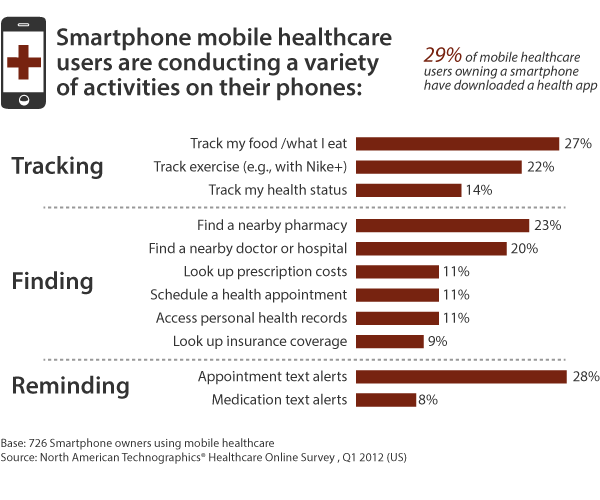The Data Digest: Technology And New Year’s Resolutions
At this time of the year, many people make resolutions — and many of these are health-related: quit smoking, exercise more, or eat healthier. As anyone who has ever made one of these resolutions knows, it's really hard to make a change. But there’s plenty of technology out there that can help track your progress and give you a bit of support.
Forrester’s Technographics® data shows that about one-third of US online smartphone owners use their phone for healthcare-related activities, ranging from tracking what they eat to text alerts about medication:

However, using technology to track your health hasn’t reached the mainstream yet. In fact, many consumers don’t consider this to be very appealing. Recently, my colleague Lindsey Colella hosted a project in Forrester’s market research online community to better understand the relationship between technology and health. In her report 'Digital Health Management Needs A Makeover To Broaden Its Consumer Appeal', she shows that the average consumer is skeptical about health-tracking technologies. Our respondents believe that using technology to track your health is either for people with a chronic disease or people who are obsessed with their health. Most of them prefer to rely on their doctor for guidance instead.
But what if your doctor tells you to stop smoking/lose weight/exercise more/eat healthier?* The good news is that if you’d like to rely on technology, there are plenty of apps and devices out there, like for example the Jawbone Up, Nike+ Fuelband, or Larklife, that can help; the bad news is that it’s still you who has to make the effort.
__________________
* select all that apply